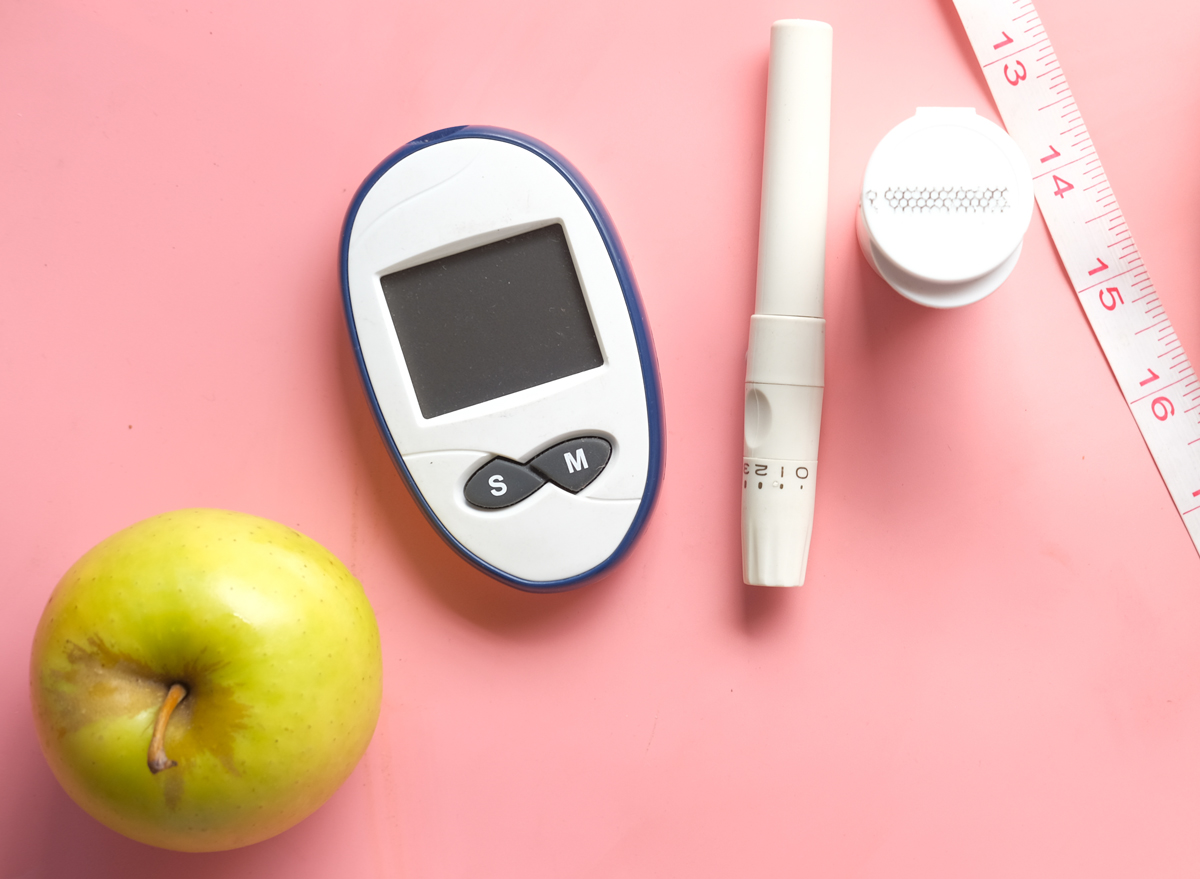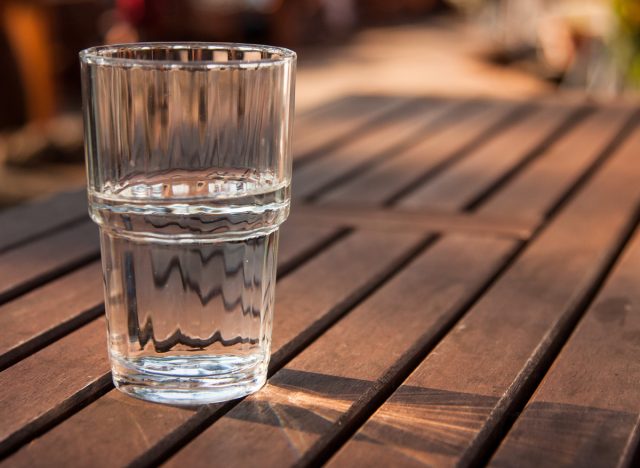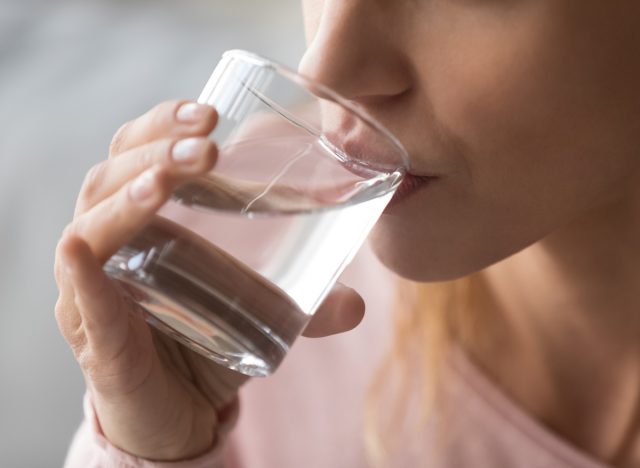This Taste Test Can Signal If You Have Diabetes, Experts Say

Whether you carefully plan your daily hydration or barely remember to drink enough water between meals, there's no denying that staying hydrated is vital for your health. But besides being genuinely essential for your body to function correctly, the simple act of pouring yourself a glass of tap water could also tell you something about a possible medical condition you may have. And according to experts, noticing one thing while drinking a regular glass of water could be a warning sign of diabetes. Read on to see what you should be looking for when you take your next sip.
Noticing a sweet taste while drinking water could be a sign of diabetes.

The first sip of water you take while feeling parched can be refreshing and indescribably delicious in its own way. But if you suddenly notice that glass of pure water you poured yourself from the tap or a fresh bottle tastes sweet, it could be a warning sign of diabetes.
Diabetes affects how your body uses insulin, which in turn, affects how your body controls blood sugar levels, according to Medical News Today. When left untreated, the disease can cause high sugar levels in the blood, which can produce a sweet taste in your mouth that you may first notice while taking a sip of water.
A related complication can also cause a "sweet, fruity smell and taste" in the mouth.

At a certain point, diabetes may also cause a related complication known as diabetic ketoacidosis. According to Medical News Today, this occurs when the body can no longer break down the sugar it needs to use for fuel and begins using fat instead, causing an acid known as ketones to build up in the body. On top of the sweet taste you may notice, the condition can also cause a fruity smell on your breath.
The Centers for Disease Control and Prevention (CDC) warns that diabetic ketoacidosis can be a potentially life-threatening condition, but that it's also one of the first signs of diabetes in someone who hasn't been diagnosed yet. In some cases, this can be brought on by getting sick and not eating or drinking as much as you usually do, making it more difficult for your body to manage blood sugar levels.
A few things could cause the sweet flavor, so it's important to also be on the lookout for other diabetes symptoms.

Of course, it's not just diabetes that can make your water taste sweet. New medications, low carb diets, and cold or flu viruses can all cause the sugary flavor—not to mention the water source itself. "Out where I live, I have well water which tastes sweeter. That usually has to do with higher levels of calcium and iron," Philip Junglas, MD, an internal medicine expert, tells Cleveland Clinic.
The strange taste could also be explained even if you're drinking from a familiar water source such as your tap at home. "If you're drinking out of a cup, the smell of the cup influences what you taste. If the cup is just out of the dishwasher, the soap may cause the liquid to taste different compared to a cup that you're drinking out of that's been on the shelf for a few days."
However, something serious may be afoot if you notice a change in the way water tastes along with other symptoms. According to Medical News Today, other warning signs of diabetes include reduced ability to taste the sweetness in foods, blurred vision, excessive thirst, excessive urination, and extreme fatigue. And if you're noticing confusion, nausea and vomiting, or abdominal cramping along with a sweet taste in your mouth, it could be a sign of diabetic ketoacidosis.
A sweet taste in the mouth could also be a sign of other serious health conditions.

While noticing a new taste to regular tap water can be a relatively common sign of diabetes, doctors warn that other serious health conditions could cause the strange symptom. Nerve damage related to a prior stroke or seizure could cause an unexplained sweet taste in the mouth, according to Medical News Today. Some also report the symptom before being diagnosed with gastroesophageal reflux disease (GERD), caused by stomach acid being backed up into the esophagus—especially during pregnancy. And while it's uncommon, certain forms of lung cancer can affect hormone levels that lead to a sweet taste in the mouth.
If you notice that the sweet flavor in your mouth is persistent and doesn't pass, it's best to speak with a doctor as soon as possible to determine the cause, Healthline writes.
RELATED: If You Notice This on Your Legs, Get Checked for Diabetes Now, Experts Say.
This story was reprinted with permission from Best Life.








